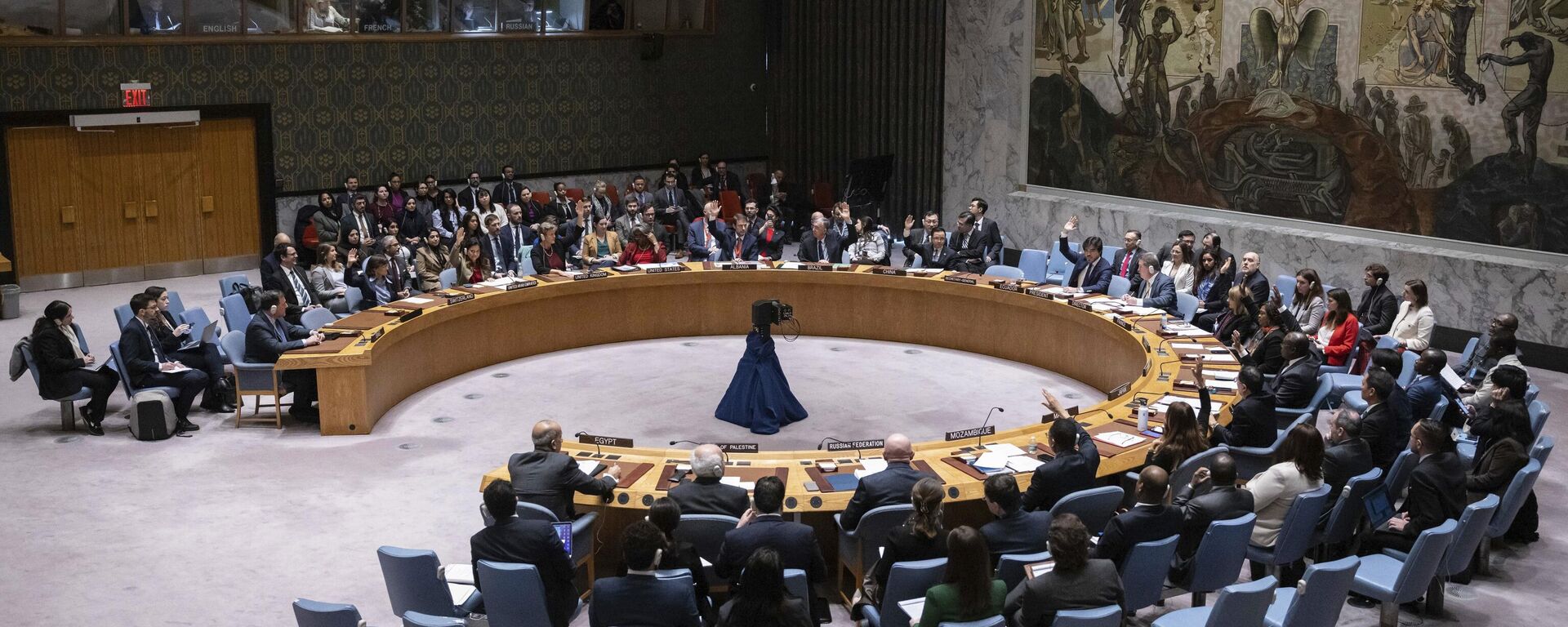https://sputnikglobe.com/20240523/israel-faces-diplomatic-defeat-as-european-countries-recognize-palestinian-state-1118593502.html
Israel Faces Diplomatic Defeat as European Countries Recognize Palestinian State
Israel Faces Diplomatic Defeat as European Countries Recognize Palestinian State
Sputnik International
The coordinated announcements by the European nations indicate a growing international consensus that peace in the Middle East requires acknowledging Palestinian rights.
2024-05-23T04:54+0000
2024-05-23T04:54+0000
2024-05-23T04:54+0000
analysis
israel
hamas
hezbollah
elijah j. magnier
benjamin netanyahu
palestine
israeli-palestinian conflict
palestine-israel conflict
israel-gaza conflict
https://cdn1.img.sputnikglobe.com/img/105348/33/1053483362_0:86:3601:2111_1920x0_80_0_0_89f1e43d729059ab31f7a22a8de529fa.jpg
Veteran war journalist Elijah Magnier provided insights into the implications of this recognition in a recent interview to the Sputnik's Critical Hour.The coordinated announcements by the European nations indicate a growing international consensus that peace in the Middle East requires acknowledging Palestinian rights. Magnier emphasized that this recognition is the minimum the global community can offer to the Palestinians, fulfilling promises made in the Oslo Accords of the 1990s.Israeli Prime Minister Benjamin Netanyahu has responded vehemently to the recognition, recalling ambassadors from the involved countries. Netanyahu's actions reflect his long-standing refusal to grant statehood to the Palestinians.US Position and Global ImplicationsDespite the European stance, the US has maintained a different approach. Secretary of State Antony Blinken and National Security Advisor Jake Sullivan have not supported the recognition of a Palestinian state. Instead, the US continues to back Israel's military actions and strategic goals.Magnier criticized this position, pointing out the contradiction in US policy, which simultaneously claims to protect civilians while supplying Israel with military support.Future ProspectsThe recognition of the Palestinian state by Norway, Ireland, and Spain signals a potential shift in the international community's approach to the Israeli-Palestinian conflict. However, with the US maintaining its support for Israel and the conflict showing no signs of resolution, the path to peace remains fraught with challenges.As Magnier concluded, "The Israelis are incapable of achieving their objectives," and the ongoing war continues to highlight the need for a new diplomatic approach.
https://sputnikglobe.com/20240522/european-trios-recognition-of-palestine-constitutes-big-failure-for-us-israeli-diplomacy-1118588511.html
https://sputnikglobe.com/20240418/us-vetoes-palestines-request-for-full-un-membership---correspondent-1118002408.html
israel
palestine
Sputnik International
feedback@sputniknews.com
+74956456601
MIA „Rossiya Segodnya“
2024
News
en_EN
Sputnik International
feedback@sputniknews.com
+74956456601
MIA „Rossiya Segodnya“
Sputnik International
feedback@sputniknews.com
+74956456601
MIA „Rossiya Segodnya“
does israel recognize palestine, does us support palestinian statehood, eu states recognized palestine
does israel recognize palestine, does us support palestinian statehood, eu states recognized palestine
Israel Faces Diplomatic Defeat as European Countries Recognize Palestinian State
In a historic diplomatic move, Norway, Ireland, and Spain have officially recognized the Palestinian state, a decision that has sparked fierce condemnation from Israel. This symbolic but significant gesture marks a shift in international relations and suggests a changing narrative in the long-standing Israeli-Palestinian conflict.
Veteran war journalist Elijah Magnier provided insights into the implications of this recognition in a recent interview to the Sputnik's Critical Hour.
"The Israelis have lost the war, they've lost the diplomatic war, and they're losing the political war with the West," said Magnier.
The
coordinated announcements by the European nations indicate a growing international consensus that peace in the Middle East requires acknowledging Palestinian rights. Magnier emphasized that this recognition is the minimum the global community can offer to the Palestinians, fulfilling promises made in the Oslo Accords of the 1990s.
Israeli Prime Minister Benjamin Netanyahu has responded vehemently to the recognition, recalling ambassadors from the involved countries. Netanyahu's actions reflect his long-standing refusal to grant statehood to the Palestinians.
"He always said that he will not give the Palestinians a state," Magnier noted, highlighting Netanyahu's consistent opposition to Palestinian sovereignty.
US Position and Global Implications
Despite the European stance, the US has maintained a
different approach. Secretary of State Antony Blinken and National Security Advisor Jake Sullivan have not supported the recognition of a Palestinian state. Instead, the US continues to back Israel's military actions and strategic goals.
Magnier criticized this position, pointing out the contradiction in US policy, which simultaneously claims to protect civilians while supplying Israel with military support.
"The Americans are still approving the Israelis with all their plans," Magnier said. He highlighted the significant civilian casualties and infrastructure destruction in Gaza, questioning the sincerity of American calls for peace.
The recognition of the Palestinian state by Norway, Ireland, and Spain signals a potential shift in the international community's approach to the Israeli-Palestinian conflict. However, with the US maintaining its support for Israel and the conflict showing no signs of resolution, the path to peace remains fraught with challenges.
As Magnier concluded, "The Israelis are incapable of achieving their objectives," and the ongoing war continues to highlight the need for a new diplomatic approach.




